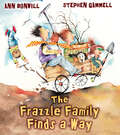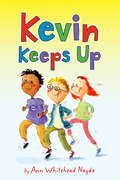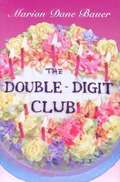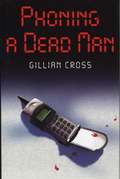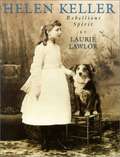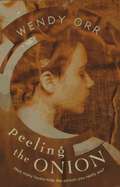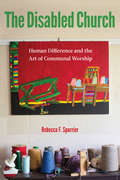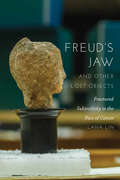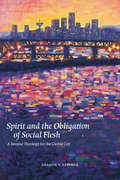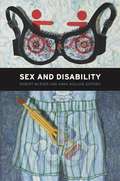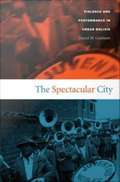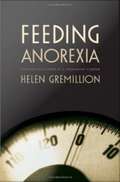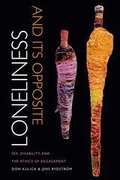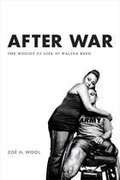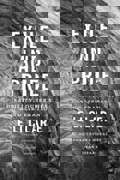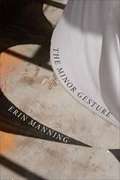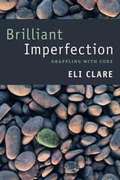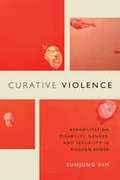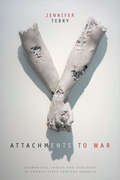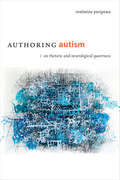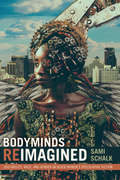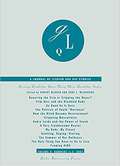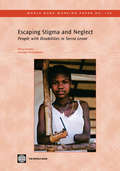- Table View
- List View
The Frazzle Family Finds a Way
by Ann BonwillEvery member of the Frazzle family is disastrously forgetful. Mr. Frazzle forgets his trousers. Wags the dog can't find his bone, and Annie and Ben bring fishing poles and towels to school instead of their homework. Not even Aunt Rosemary with her organizational tips can help. But one day Annie has an idea that combines rhyme, recall, and song into a melodic way to remember in this warmheated tribute to compensating for weaknesses.
Kevin Keeps Up
by Ann Whitehead Nagda Chris RussoOh no! Beezer the Buzzard will be the sub while Mrs. Steele is away, and Kevin is going to be dead meat! When Mrs. Steele goes on an extended trip to Africa, Kevin knows he'll be stuck inside for every recess and have his desk moved to the front of the class. Mrs. Beezer just doesn't understand Kevin's problems with focusing and controlling his impulses. This charming chapter book takes a perceptive look at ADHD and the challenges it can present in school.
The Double-Digit Club
by Marion Dane BauerNine-year-old Sarah is excited about summer vacation, but she faces unexpected crises when her best friend Paige becomes old enough to join a local girls' clique, and when she makes choices which affect her relationship with an elderly blind neighbor.
Phoning a Dead Man
by Gillian CrossWhen John, a British demolition expert is supposedly killed blowing up a building, his fiancée Annie insists on investigating, despite being in a wheelchair, and John's teenage sister Hayley goes along and finds that the Russian Mafia is involved.
Helen Keller, Rebellious Spirit: The Life and Times of Helen Keller
by Laurie LawlorRecounting her mischievous nature, her little known romance, and her trials with her teacher and the public, this biography sheds new light on this extraordinary woman.
Peeling the Onion
by Wendy OrrTold in the first person, this is a detailed story of the physical and emotional difficulties 17-year-old Anna must struggle with as she recovers from a devastating automobile accident that, although she is alive and not paralyzed, destroys her dreams and her plans for her life
A Picture Book of Helen Keller
by David A. AdlerA brief biography of the woman who overcame her handicaps of being both blind and deaf.
The Disabled Church: Human Difference and the Art of Communal Worship
by Rebecca F. SpurrierHow do communities consent to difference? How do they recognize and create the space and time necessary for the differences and disabilities of those who constitute them? Christian congregations often make assumptions about the shared abilities, practices, and experiences that are necessary for communal worship. The author of this provocative new book takes a hard look at these assumptions through a detailed ethnographic study of an unusual religious community where more than half the congregants live with diagnoses of mental illness, many coming to the church from personal care homes or independent living facilities. Here, people’s participation in worship disrupts and extends the formal orders of worship. Whenever one worships God at Sacred Family Church, there is someone who is doing it differently.Here, the author argues, the central elements and the participation in the symbols of Christian worship raise questions rather than supply clear markers of unity, prompting the question, What do you need in order to have a church that assumes difference at its heart?Based on three years of ethnographic research, The Disabled Church describes how the Sacred Family community, comprising people with very different mental abilities, backgrounds, and resources, sustains and embodies a common religious identity. It explores how an ethic of difference is both helped and hindered by a church’s embodied theology. Paying careful attention to how these congregants improvise forms of access to a common liturgy, this book offers a groundbreaking theology of worship that engages both the fragility and beauty revealed by difference within the church. As liturgy requires consent to difference rather than coercion, an aesthetic approach to differences within Christian liturgy provides a frame for congregations and Christian liturgists to pay attention to the differences and disabilities of worshippers. This book creates a distinctive conversation between critical disability studies, liturgical aesthetics, and ethnographic theology, offering an original perspective on the relationship between beauty and disability within Christian communities. Here is a transformational theological aesthetics of Christian liturgy that prioritizes human difference and argues for the importance of the Disabled Church.
Freud's Jaw and Other Lost Objects: Fractured Subjectivity in the Face of Cancer
by Lana LinWhat does it mean to live with life-threatening illness? How does one respond to loss? Freud’s Jaw and Other Lost Objects attempts to answer these questions and, as such, illuminates the vulnerabilities of the human body and how human beings suffer harm. In particular, it examines how cancer disrupts feelings of bodily integrity and agency. Employing psychoanalytic theory and literary analysis, Lana Lin tracks three exemplary figures, psychoanalyst Sigmund Freud, poet Audre Lorde, and literary and queer theorist Eve Kosofsky Sedgwick. Freud’s sixteen-year ordeal with a prosthetic jaw, the result of oral cancer, demonstrates the powers and failures of prosthetic objects in warding off physical and psychic fragmentation. Lorde’s life writing reveals how losing a breast to cancer is experienced as yet another attack directed toward her racially and sexually vilified body. Sedgwick’s memoir and breast cancer advice column negotiate her morbidity by disseminating a public discourse of love and pedagogy. Lin concludes with an analysis of reparative efforts at the rival Freud Museums in London and Vienna. The disassembled Freudian archive, like the subjectivities-in-dissolution upon which the book focuses, shows how the labor of integration is tethered to persistent discontinuities.Freud’s Jaw asks what are the psychic effects of surviving in proximity to one’s mortality, and it suggests that violences stemming from social, cultural, and biological environments condition the burden of such injury. Drawing on psychoanalyst Melanie Klein’s concept of “reparation,” wherein constructive forces are harnessed to repair damage to internal psychic objects, Lin proposes that the prospect of imminent destruction paradoxically incites creativity. The afflicted are obliged to devise means to reinstate, at least temporarily, their destabilized physical and psychic unity through creative, reparative projects of love and writing.
Spirit and the Obligation of Social Flesh: A Secular Theology for the Global City
by Sharon V. BetcherDrawing on philosophical reflection, spiritual and religious values, and somatic practice, Spirit and the Obligation of Social Flesh offers guidance for moving amidst the affective dynamics that animate the streets of the global cities now amassing around our planet. Here theology turns decidedly secular. In urban medieval Europe, seculars were uncloistered persons who carried their spiritual passion and sense of an obligated life into daily circumambulations of the city. Seculars lived in the city, on behalf of the city, but—contrary to the new profit economy of the time—with a different locus of value: spirit. Betcher argues that for seculars today the possibility of a devoted life, the practice of felicity in history, still remains. Spirit now names a necessary “prosthesis,” a locus for regenerating the elemental commons of our interdependent flesh and thus for cultivating spacious and fearless empathy, forbearance, and generosity. Her theological poetics, though based in Christianity, are frequently in conversation with other religions resident in our postcolonial cities.
Theories of Illness: World Survey
by George Peter MurdockTheories of Illness establishes a new landmark in comparative studies. Utilizing concepts from modern medicine and anthropological theory, Professor Murdock distinguishes the natural causes of illness from theories of supernatural causation. He subdivides the latter into theories of illness that are related to aggression (witchcraft, sorcery, and spirit aggression) and those which are related to guilt and a sense of sin (taboo violation and mystical retribution). Obviously, these relate to man's most basic beliefs as revealed in early religions.
Sex and Disability
by Robert Mcruer Anna MollowThe title of this collection of essays, Sex and Disability, unites two terms that the popular imagination often regards as incongruous. The major texts in sexuality studies, including queer theory, rarely mention disability, and foundational texts in disability studies do not discuss sex in much detail. What if "sex" and "disability" were understood as intimately related concepts? And what if disabled people were seen as both subjects and objects of a range of erotic desires and practices? These are among the questions that this collection's contributors engage. From multiple perspectives--including literary analysis, ethnography, and autobiography--they consider how sex and disability come together and how disabled people negotiate sex and sexual identities in ableist and heteronormative culture. Queering disability studies, while also expanding the purview of queer and sexuality studies, these essays shake up notions about who and what is sexy and sexualizable, what counts as sex, and what desire is. At the same time, they challenge conceptions of disability in the dominant culture, queer studies, and disability studies.Contributors. Chris Bell, Michael Davidson, Lennard J. Davis, Michel Desjardins, Lezlie Frye, Rachael Groner, Kristen Harmon, Michelle Jarman, Alison Kafer, Riva Lehrer, Nicole Markotić, Robert McRuer, Anna Mollow, Rachel O'Connell, Russell Shuttleworth, David Serlin, Tobin Siebers, Abby L. Wilkerson
The Spectacular City: Violence and Performance in Urban Bolivia
by Daniel M. GoldsteinSince the Bolivian revolution in 1952, migrants have come to the city of Cochabamba, seeking opportunity and relief from rural poverty. They have settled in barrios on the city's outskirts only to find that the rights of citizens--basic rights of property and security, especially protection from crime--are not available to them. In this ethnography, Daniel M. Goldstein considers the significance of and similarities between two kinds of spectacles--street festivals and the vigilante lynching of criminals--as they are performed in the Cochabamba barrio of Villa Pagador. By examining folkloric festivals and vigilante violence within the same analytical framework, Goldstein shows how marginalized urban migrants, shut out of the city and neglected by the state, use performance to assert their national belonging and to express their grievances against the inadequacies of the state's official legal order. During the period of Goldstein's fieldwork in Villa Pagador in the mid-1990s, residents attempted to lynch several thieves and attacked the police who tried to intervene. Since that time, there have been hundreds of lynchings in the poor barrios surrounding Cochabamba. Goldstein presents the lynchings of thieves as a form of horrific performance, with elements of critique and political action that echo those of local festivals. He explores the consequences and implications of extralegal violence for human rights and the rule of law in the contemporary Andes. In rich detail, he provides an in-depth look at the development of Villa Pagador and of the larger metropolitan area of Cochabamba, illuminating a contemporary Andean city from both microethnographic and macrohistorical perspectives. Focusing on indigenous peoples' experiences of urban life and their attempts to manage their sociopolitical status within the broader context of neoliberal capitalism and political decentralization, The Spectacular City highlights the deep connections between performance, law, violence, and the state.
Feeding Aorexia: Gender and Power at a Treatment Center
by Helen GremillionFeeding Anorexia challenges prevailing assumptions regarding the notorious difficulty of curing anorexia nervosa. Through a vivid chronicle of treatments at a state-of-the-art hospital program, Helen Gremillion reveals how the therapies participate unwittingly in culturally dominant ideals of gender, individualism, physical fitness, and family life that have contributed to the dramatic increase in the incidence of anorexia in the United States since the 1970s. She describes how strategies including the meticulous measurement of patients' progress in terms of body weight and calories consumed ultimately feed the problem, not only reinforcing ideas about the regulation of women's bodies, but also fostering in many girls and women greater expertise in the formidable constellation of skills anorexia requires. At the same time, Gremillion shows how contradictions and struggles in treatment can help open up spaces for change. Feeding Anorexia is based on fourteen months of ethnographic research in a small inpatient unit located in a major teaching and research hospital in the western United States. Gremillion attended group, family, and individual therapy sessions and medical staff meetings; ate meals with patients; and took part in outings and recreational activities. She also conducted over one hundred interviews-with patients, parents, staff, and clinicians. Among the issues she explores are the relationship between calorie-counting and the management of consumer desire; why the "typical" anorexic patient is middle-class and white; the extent to which power differentials among clinicians, staff, and patients model "anorexic families"; and the potential of narrative therapy to constructively reframe some of the problematic assumptions underlying more mainstream treatments.
Loneliness and Its Opposite: Sex, Disability, and the Ethics of Engagement
by Jens Rydström Don KulickFew people these days would oppose making the public realm of space, social services and jobs accessible to women and men with disabilities. But what about access to the private realm of desire and sexuality? How can one also facilitate access to that, in ways that respect the integrity of disabled adults, and also of those people who work with and care for them?Loneliness and Its Opposite documents how two countries generally imagined to be progressive engage with these questions in very different ways. Denmark and Sweden are both liberal welfare states, but they diverge dramatically when it comes to sexuality and disability. In Denmark, the erotic lives of people with disabilities are acknowledged and facilitated. In Sweden, they are denied and blocked. Why do these differences exist, and how do both facilitation and hindrance play out in practice?Loneliness and Its Opposite charts complex boundaries between private and public, love and sex, work and intimacy, and affection and abuse. It shows how providing disabled adults with access to sexual lives is not just crucial for a life with dignity. It is an issue of fundamental social justice with far reaching consequences for everyone.
After War: The Weight of Life at Walter Reed
by Zoë H. WoolIn After War Zoë H. Wool explores how the American soldiers most severely injured in the Iraq and Afghanistan wars struggle to build some kind of ordinary life while recovering at Walter Reed Army Medical Center from grievous injuries like lost limbs and traumatic brain injury. Between 2007 and 2008, Wool spent time with many of these mostly male soldiers and their families and loved ones in an effort to understand what it's like to be blown up and then pulled toward an ideal and ordinary civilian life in a place where the possibilities of such a life are called into question. Contextualizing these soldiers within a broader political and moral framework, Wool considers the soldier body as a historically, politically, and morally laden national icon of normative masculinity. She shows how injury, disability, and the reality of soldiers' experiences and lives unsettle this icon and disrupt the all-too-common narrative of the heroic wounded veteran as the embodiment of patriotic self-sacrifice. For these soldiers, the uncanny ordinariness of seemingly extraordinary everyday circumstances and practices at Walter Reed create a reality that will never be normal.
Exile and Pride: Disability, Queerness, and Liberation
by Eli ClareFirst published in 1999, the groundbreaking Exile and Pride is essential to the history and future of disability politics. Eli Clare's revelatory writing about his experiences as a white disabled genderqueer activist/writer established him as one of the leading writers on the intersections of queerness and disability and permanently changed the landscape of disability politics and queer liberation. With a poet's devotion to truth and an activist's demand for justice, Clare deftly unspools the multiple histories from which our ever-evolving sense of self unfolds. <P><P>His essays weave together memoir, history, and political thinking to explore meanings and experiences of home: home as place, community, bodies, identity, and activism. Here readers will find an intersectional framework for understanding how we actually live with the daily hydraulics of oppression, power, and resistance. At the root of Clare's exploration of environmental destruction and capitalism, sexuality and institutional violence, gender and the body politic, is a call for social justice movements that are truly accessible to everyone. With heart and hammer, Exile and Pride pries open a window onto a world where our whole selves, in all their complexity, can be realized, loved, and embraced.
The Minor Gesture
by Erin ManningIn this wide-ranging and probing book Erin Manning extends her previous inquiries into the politics of movement to the concept of the minor gesture. The minor gesture, although it may pass almost unperceived, transforms the field of relations. More than a chance variation, less than a volition, it requires rethinking common assumptions about human agency and political action. To embrace the minor gesture's power to fashion relations, its capacity to open new modes of experience and manners of expression, is to challenge the ways in which the neurotypical image of the human devalues alternative ways of being moved by and moving through the world--in particular what Manning terms "autistic perception." Drawing on Deleuze and Guattari's schizoanalysis and Whitehead's speculative pragmatism, Manning's far-reaching analyses range from fashion to depression to the writings of autistics, in each case affirming the neurodiversity of the minor and the alternative politics it gestures toward.
Brilliant Imperfection: Grappling with Cure
by Eli ClareIn Brilliant Imperfection Eli Clare uses memoir, history, and critical analysis to explore cure—the deeply held belief that body-minds considered broken need to be fixed. Cure serves many purposes. It saves lives, manipulates lives, and prioritizes some lives over others. It provides comfort, makes profits, justifies violence, and promises resolution to body-mind loss. Clare grapples with this knot of contradictions, maintaining that neither an anti-cure politics nor a pro-cure worldview can account for the messy, complex relationships we have with our body-minds. The stories he tells range widely, stretching from disability stereotypes to weight loss surgery, gender transition to skin lightening creams. At each turn, Clare weaves race, disability, sexuality, class, and gender together, insisting on the nonnegotiable value of body-mind difference. Into this mix, he adds environmental politics, thinking about ecosystem loss and restoration as a way of delving more deeply into cure. Ultimately Brilliant Imperfection reveals cure to be an ideology grounded in the twin notions of normal and natural, slippery and powerful, necessary and damaging all at the same time.
Curative Violence: Rehabilitating Disability, Gender, and Sexuality in Modern Korea
by Eunjung KimIn Curative Violence Eunjung Kim examines what the social and material investment in curing illnesses and disabilities tells us about the relationship between disability and Korean nationalism. Kim uses the concept of curative violence to question the representation of cure as a universal good and to understand how nonmedical and medical cures come with violent effects that are not only symbolic but also physical. Writing disability theory in a transnational context, Kim tracks the shifts from the 1930s to the present in the ways that disabled bodies and narratives of cure have been represented in Korean folktales, novels, visual culture, media accounts, policies, and activism. Whether analyzing eugenics, the management of Hansen's disease, discourses on disabled people's sexuality, violence against disabled women, or rethinking the use of disabled people as a metaphor for life under Japanese colonial rule or under the U.S. military occupation, Kim shows how the possibility of life with disability that is free from violence depends on the creation of a space and time where cure is seen as a negotiation rather than a necessity.
Attachments to War: Biomedical Logics and Violence in Twenty-First-Century America
by Jennifer TerryIn Attachments to War Jennifer Terry traces how biomedical logics entangle Americans in a perpetual state of war. Focusing on the Afghanistan and Iraq wars between 2002 and 2014, Terry identifies the presence of a biomedicine-war nexus in which new forms of wounding provoke the continual development of complex treatment, rehabilitation, and prosthetic technologies. At the same time, the U.S. military rationalizes violence and military occupation as necessary conditions for advancing medical knowledge and saving lives. Terry examines the treatment of war-generated polytrauma, postinjury bionic prosthetics design, and the development of defenses against infectious pathogens, showing how the interdependence between war and biomedicine is interwoven with neoliberal ideals of freedom, democracy, and prosperity. She also outlines the ways in which military-sponsored biomedicine relies on racialized logics that devalue the lives of Afghan and Iraqi citizens and U.S. veterans of color. Uncovering the mechanisms that attach all Americans to war and highlighting their embeddedness and institutionalization in everyday life via the government, media, biotechnology, finance, and higher education, Terry helps lay the foundation for a more meaningful opposition to war.
Authoring Autism: On Rhetoric and Neurological Queerness
by Melanie YergeauIn Authoring Autism Melanie Yergeau defines neurodivergence as an identity—neuroqueerness—rather than an impairment. Using a queer theory framework, Yergeau notes the stereotypes that deny autistic people their humanity and the chance to define themselves while also challenging cognitive studies scholarship and its reification of the neurological passivity of autistics. She also critiques early intensive behavioral interventions—which have much in common with gay conversion therapy—and questions the ableist privileging of intentionality and diplomacy in rhetorical traditions. Using storying as her method, she presents an alternative view of autistic rhetoricity by foregrounding the cunning rhetorical abilities of autistics and by framing autism as a narrative condition wherein autistics are the best-equipped people to define their experience. Contending that autism represents a queer way of being that simultaneously embraces and rejects the rhetorical, Yergeau shows how autistic people queer the lines of rhetoric, humanity, and agency. In so doing, she demonstrates how an autistic rhetoric requires the reconceptualization of rhetoric’s very essence.
Bodyminds Reimagined: (Dis)ability, Race, and Gender in Black Women's Speculative Fiction
by Sami SchalkIn Bodyminds Reimagined Sami Schalk traces how black women's speculative fiction complicates the understanding of bodyminds—the intertwinement of the mental and the physical—in the context of race, gender, and (dis)ability. Bridging black feminist theory with disability studies, Schalk demonstrates that this genre's political potential lies in the authors' creation of bodyminds that transcend reality's limitations. She reads (dis)ability in neo-slave narratives by Octavia Butler (Kindred) and Phyllis Alesia Perry (Stigmata) not only as representing the literal injuries suffered under slavery, but also as a metaphor for the legacy of racial violence. The fantasy worlds in works by N. K. Jemisin, Shawntelle Madison, and Nalo Hopkinson—where werewolves have obsessive-compulsive-disorder and blind demons can see magic—destabilize social categories and definitions of the human, calling into question the very nature of identity. In these texts, as well as in Butler’s Parable series, able-mindedness and able-bodiedness are socially constructed and upheld through racial and gendered norms. Outlining (dis)ability's centrality to speculative fiction, Schalk shows how these works open new social possibilities while changing conceptualizations of identity and oppression through nonrealist contexts.
Desiring Disability: Queer Theory Meets Disability Studies
by Robert McRuer Abby L. Wilkerson Ellen SamuelsIn multiple locations, activists and scholars are mapping the intersections of queer theory and disability studies, moving issues of embodiment and desire to the center of cultural and political analyses. The two fields are premised on the idea that the categories of heterosexual/homosexual and able-bodied/disabled are historically and socially constructed. Desiring Disability: Queer Theory Meets Disability Studies explores how the frameworks for queer theory and disability studies suggest new possibilities for one another, for other identity-based frameworks of activism and scholarship, and for cultural studies in general. <P><P> Topics include the study of "crip theory" and queer/disabled performance artists; the historical emergence of normalcy and parallel notions of military fitness that require both the production and the containment of queerness and disability; and butch identity, transgressive sexual practices, and rheumatoid arthritis. <P><P> Contributors. Sarah E. Chinn, Eli Clare, Naomi Finkelstein, Catherine Lord, Cris Mayo, Robert McRuer, Todd Ramlow, Jo Rendell, Ellen Samuels, Carrie Sandahl, David Serlin, Patrick White
Escaping Stigma and Neglect: People with Disabilities in Sierra Leone
by Mirey Ovadiya Giuseppe ZampaglionePeople with disabilities in Sierra Leone are disadvantaged in regards to their access to social services and the economic opportunities available to them. Oftentimes, they are marginalized and their rights are ignored. The government of Sierra Leone is taking measures to improve the social and economic situation of people with disabilities in the country. The objective of this note on people with disabilities in Sierra Leone is to: (i) provide a diagnosis on the scale and nature of the problem, (ii) analyze current public policies in support of people with disabilities, (iii) review public and private programs, and (iv) propose policy options to policy makers and development partners. It is meant for policy makers and practitioners in Sierra Leone as well as all those interested in the subject.
